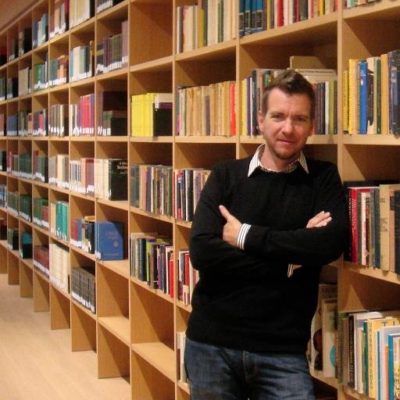BERLIN — Can we learn from history? Has the vow of “Never again!” found fulfillment? Or has one historic catastrophe merely paved the way for an even more tragic repetition? These crucial questions are at the center of an ambitious and timely initiative launched by the AGBU Europe in partnership with the Lepsius House in Potsdam, the European Union of Jewish Students (EUJS) and the Roma organization Phiren Amenca.
“Ideas & their Consequences: Genocide and International Justice after 1919” is the name of the project, co-funded by the Europe for Citizens Programme of the European Union. It begins with a series of online events in June, followed by an international conference in late August. The aim of the initiative is to examine two opposing processes that unfolded in Europe in the wake of World War I: on the one hand, the concepts of humanitarianism and international justice came into being and took on concrete form, and on the other, radical extremist political ideologies emerged anew, with the potential for unthinkable savagery. The Ottoman genocide of 1915 plays a central role in the proceedings. As the invitation states, that watershed event will be presented as an integral part of European history, that it “inspired horror, compassion, fascination and passionate debate in European countries before, during and after its occurrence, and that it profoundly influenced political thinking in Europe.”
The speakers represent leading academics who have researched both trends characterizing the interwar period, the history of humanitarianism and international justice and the history of radical ideologies and political violence. Opening the series of webinars (held in English, http://www.lepsiushaus-potsdam.de/) on June 2 is Dr. Rolf Hosfeld, historian and Director of the Potsdam Lepsius House. A member of the German Writers’ Union since 1982, Hosfeld has published numerous articles as well as fifteen books, some of which have received awards. His biography of Karl Marx won “Das politische Buch” (the political book) prize in 2010. His history of the Armenian genocide appeared in 2005 and 2009, and a 2015 revised edition was translated into Turkish (2018) and Armenian (2021). He has also edited, co-edited and contributed to works on Johannes Lepsius and the German Empire.
In the webinar he will present “The Rise of International Law: The Talaat Pasha Trial in June 1921.” This is the centenary year of the event that made legal history, providing Raphael Lemkin with the inspiration to develop the concept and term of genocide. Hosfeld examines the background to the trial that Hannah Arendt referenced in her book, Eichmann in Jerusalem, and explores the contribution it made to the forging of international law.
Stefan Ihrig, Professor of History at the University of Haifa, looks into the way German nationalists and the Nazis drew destructive conclusions from the genocide, shaping ethnic policies that were to be implemented in the Shoah. His theme on June 3 is “The Original Sin of Europe’s Dark 20th Century: (Re)Integrating the Armenian Genocide into European and World History.” The intense debates that raged in post-war Germany contributed to the process leading to the Shoah and thus suggest the need to reconceptualize basic assumptions about 20th century history. Ihrig is the author of Ataturk in the Nazi Imagination (2014) and Justifying Genocide – Germany and the Armenians from Bismarck to Hitler (2016).
On June 4, a panel discussion will take the matter out of the past and consider its implications in relation to the current situation in the Caucasus. Organized by the Lepsius House and AGBU Lebanon, this event, entitled “Embattled Dreamlands,” focuses on the history of the Nagorno Karabakh conflict. Prof. Ronald G. Suny from the University of Michigan, Ann Arbor, and Dr. David Leupold from the Leibniz-Zentrum Moderner Orient in Berlin look into the renewed outbreak of conflict from various vantage points. Reviewing the developments from the Ottoman and Soviet eras to the ongoing geopolitical confrontation, the experts seek to sharpen our understanding of the consequences that derive from the wanton destruction of cultural heritage monuments, and to explore perspectives for bringing peace to a region devastated by crises and war.








